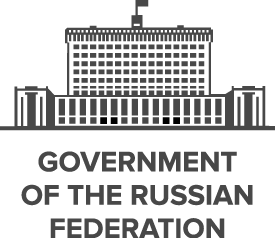Founded in the 12th century, the Principality of Muscovy was able to emerge from over 200 years of Mongol domination (13th-15th centuries) and to gradually conquer and absorb surrounding principalities. In the early 17th century, a new ROMANOV Dynasty continued this policy of expansion across Siberia to the Pacific. Under PETER I (ruled 1682-1725), hegemony was extended to the Baltic Sea and the country was renamed the Russian Empire. During the 19th century, more territorial acquisitions were made in Europe and Asia. Defeat in the Russo-Japanese War of 1904-05 contributed to the Revolution of 1905, which resulted in the formation of a parliament and other reforms. Repeated devastating defeats of the Russian army in World War I led to widespread rioting in the major cities of the Russian Empire and to the overthrow in 1917 of the imperial household. The communists under Vladimir LENIN seized power soon after and formed the USSR. The brutal rule of Iosif STALIN (1928-53) strengthened communist rule and Russian dominance of the Soviet Union at a cost of tens of millions of lives. After defeating Germany in World War II as part of an alliance with the US (1939-1945), the USSR expanded its territory and influence in Eastern Europe and emerged as a global power. The USSR was the principal adversary of the US during the Cold War (1947-1991). The Soviet economy and society stagnated in the decades following Stalin’s rule, until General Secretary Mikhail GORBACHEV (1985-91) introduced glasnost (openness) and perestroika (restructuring) in an attempt to modernize communism, but his initiatives inadvertently released forces that by December 1991 splintered the USSR into Russia and 14 other independent republics.
Following economic and political turmoil during President Boris YELTSIN's term (1991-99), Russia shifted toward a centralized authoritarian state under the leadership of President Vladimir PUTIN (2000-2008, 2012-present) in which the regime seeks to legitimize its rule through managed elections, populist appeals, a foreign policy focused on enhancing the country's geopolitical influence, and commodity-based economic growth. Russia faces a largely subdued rebel movement in Chechnya and some other surrounding regions, although violence still occurs throughout the North Caucasus.
Russia is a semi-presidential federation.
Members:
Resources
Displaying 861 - 865 of 1046Regional Law No. 132-10-OZ “On regulation of relations in the sphere of conservation, management, promotion and state protection of the objects of cultural heritage.
The scope of this Regional Law shall be conservation, management, promotion and state protection of the objects of cultural heritage. Objects of cultural heritage shall be covered by conservation pledge agreement signed by manager of the objects of cultural heritage. Boundaries of the reserve containing objects of cultural heritage shall be mapped in-situ.
Regional Law No. 427-28-OZ amending Regional Law No. 132-10-OZ “On regulation of relations in the sphere of conservation, management, promotion and state protection of the objects of cultural heritage.
Article 4 shall be amended to add the following wording: “Authorized regional state institution in the sphere of cultural heritage shall carry out state registration thereof, historical and cultural expertise, elaboration of areas of cultural heritage and mapping of the boundaries thereof”.
Amends: Regional Law No. 132-10-OZ “On regulation of relations in the sphere of conservation, management, promotion and state protection of the objects of cultural heritage. (2011-04-27)
Regional Law No. 94/2005-OZ “On objects of cultural heritage”.
This Regional Law regulates relations in the sphere of conservation, promotion and state protection of the objects of cultural heritage. It establishes in areas adjacent to the objects of cultural heritage the following protection zones shall be set: (a) protection zone; (b) zone of restricted economic activities; and (c) zone of protected landscape. Restriction on movement of motor vehicles shall be imposed in the area of location of the objects of cultural heritage and within protection zones.
Regional Law No. 208-OZ “On guarantees of rights of indigenous peoples”.
This Regional Law establishes basic rights of indigenous peoples as regards local self-government, customary and traditional rights in the sphere of hunting and nature management, and conservation of traditional living environment thereof. Traditional living environment of indigenous populations shall be considered traditionally inhabited areas by indigenous populations and areas of traditional nature management thereof.
Regional Law No. 278-OZ “On turnover of agricultural land”.
This Regional Law regulates relations concerning ownership, tenancy and disposal of land parcels and land shares of agricultural land located on the regional territory. State bodies and local government must perform rational land-use planning of agricultural land and protection thereof with a view of: (a) ensuring the right of citizens to favourable environment; (b) ensuring sustainable land tenure; (c) improvement of soil fertility; and (d) ensuring sustainable economic development of the producers of agricultural commodities.


